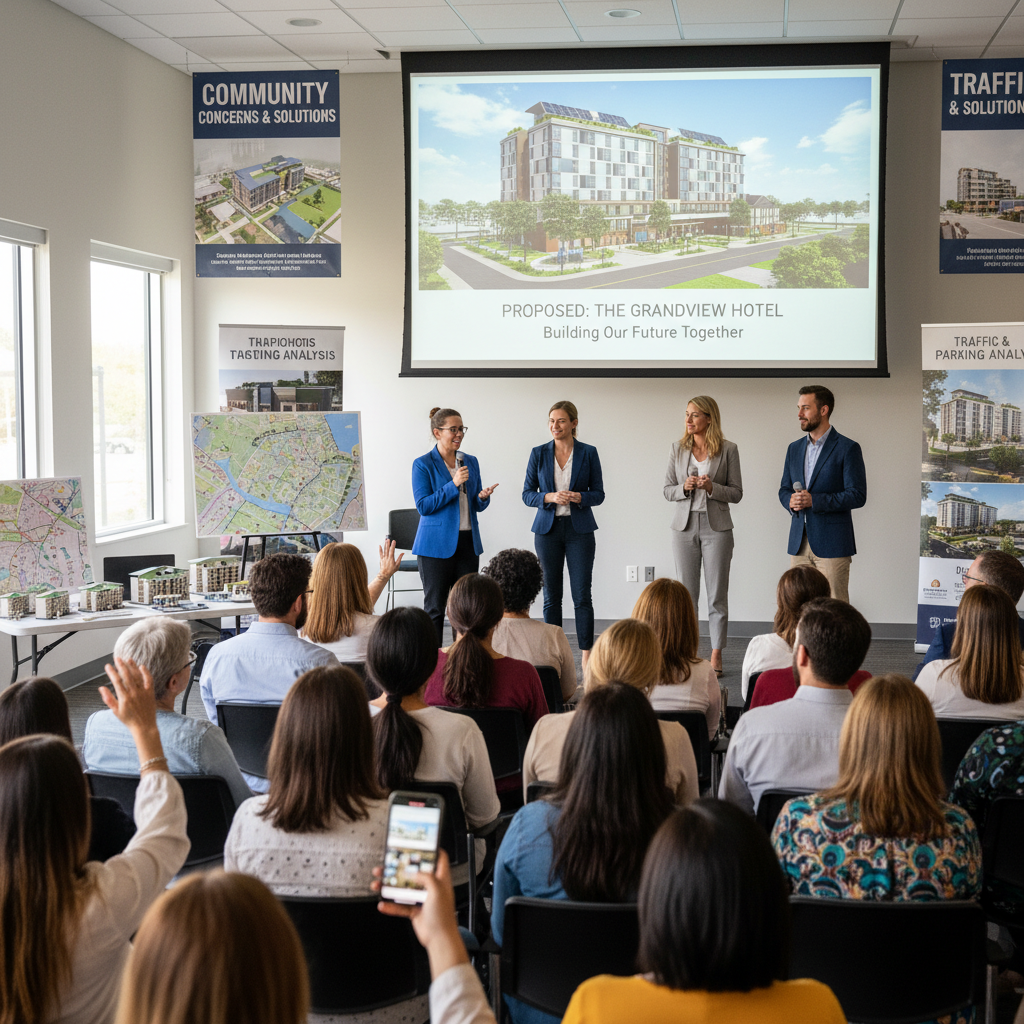Navigating Community Concerns: Best Practices for Hotel Development
Hotel development projects often face scrutiny from local communities. As U.S. hotel managers, understanding and proactively addressing these concerns is crucial for ensuring project approval, fostering positive relationships, and building long-term success. Ignoring community feedback can lead to delays, increased costs, and reputational damage.
Early Engagement is Key
The most effective strategy is to engage with the community early in the planning process. This involves:
- Identifying Stakeholders: Determine who will be most affected by the project. This includes residents, neighborhood associations, local businesses, and environmental groups.
- Open Communication: Host town hall meetings, create online forums, and distribute informational materials to keep the community informed.
- Active Listening: Solicit feedback and address concerns transparently. Be prepared to answer tough questions and demonstrate a willingness to compromise.
Addressing Common Concerns
Some of the most common concerns include:
- Traffic Impact: Provide a comprehensive traffic study and propose solutions to mitigate congestion, such as improved traffic flow, designated parking areas, and shuttle services.
- Environmental Impact: Conduct thorough environmental assessments and implement sustainable practices to minimize the hotel’s footprint. This may include green building materials, energy-efficient technologies, and water conservation measures.
- Noise Pollution: Develop a noise mitigation plan that includes soundproofing, noise barriers, and restrictions on outdoor activities during certain hours.
- Property Values: Present data demonstrating how the hotel will positively impact property values and contribute to the local economy.
- Aesthetics and Design: Ensure the hotel’s design complements the surrounding architecture and enhances the overall aesthetic appeal of the neighborhood. Consider incorporating local design elements and landscaping.
Building Strong Relationships
Community engagement is an ongoing process. Building strong relationships with local stakeholders is essential for long-term success. This can be achieved through:
- Community Benefits Agreements: Negotiate agreements that provide tangible benefits to the community, such as job creation, local sourcing, and community development initiatives.
- Philanthropic Support: Support local charities and organizations through donations and volunteer efforts.
- Regular Communication: Maintain open lines of communication with the community and provide regular updates on the project’s progress.
The Importance of Flexibility
Be prepared to adapt your plans based on community feedback. Demonstrating a willingness to compromise and address concerns will build trust and increase the likelihood of project approval. Remember that successful hotel development is not just about bricks and mortar; it’s about building positive relationships and becoming a valued member of the community.
Source: ajc.com




